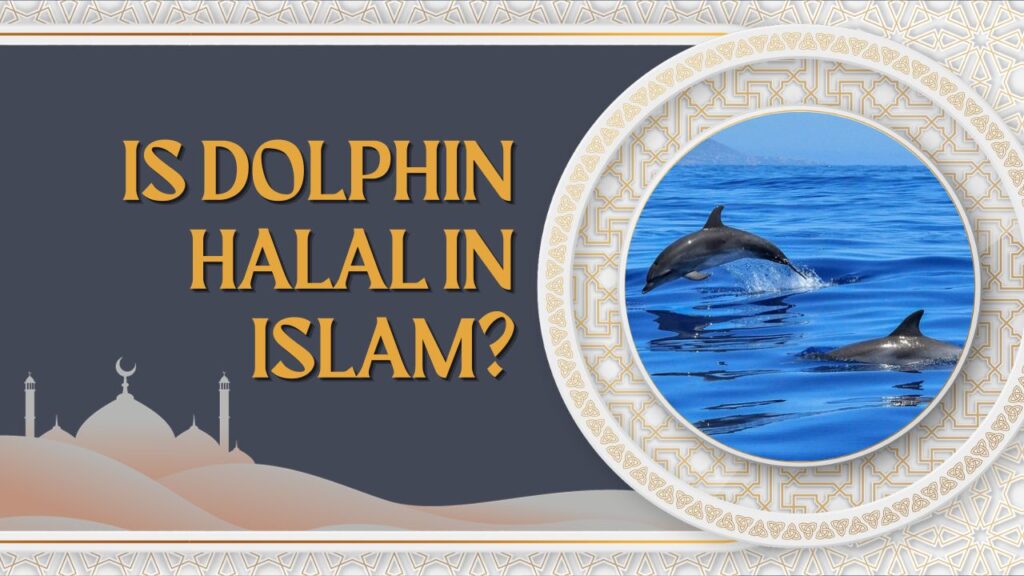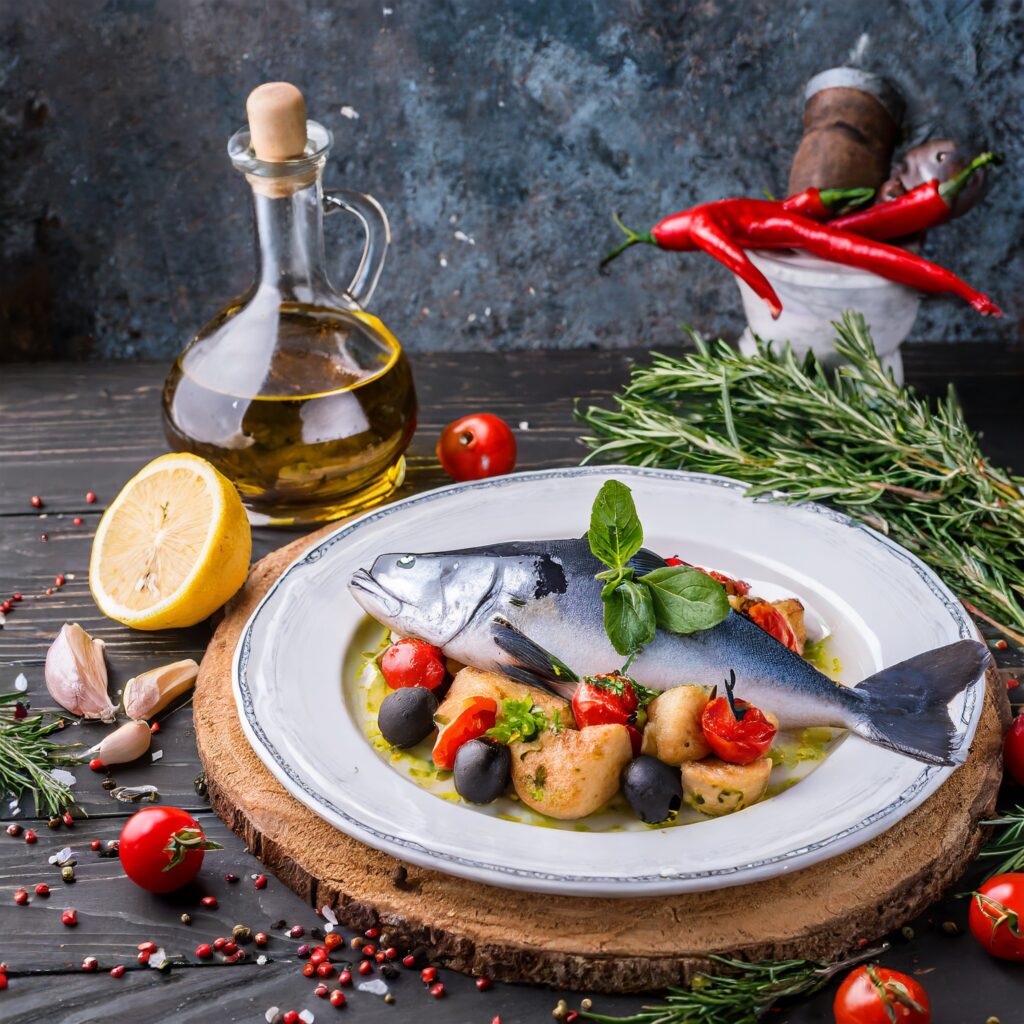Last updated on January 28th, 2024 at 10:11 am

Hey there, curious readers!
Islam, as a major religion, provides specific dietary rules for its followers, as found in the Quran.
These rules define what’s allowed (halal) and what’s forbidden (haram) for Muslims to eat.
But, you know what? There are some unclear areas, especially when it comes to dolphins.
So, the big question is: Is dolphin halal in Islam? It’s a topic that sparks debates and discussions.
In this blog post, I am diving deep into this question.
I’ll share various perspectives on whether dolphins are considered halal in Islam. Get ready to explore this fascinating topic with me!
Table of Contents
- 1 Understanding Islamic Dietary Laws
- 2 Examining the Classification of Dolphins
- 3 Different Perspectives in Islamic Schools of Thought
- 4 Addressing Ethical and Conservation Concerns
- 5 Contemporary Fatwas and Scholarly Opinions
- 6 Personal Responsibility and Informed Decision-Making
- 7 Is Dolphin Halal In Islam? (With Video)
- 8 Frequently Asked Questions (FAQs)
- 9 Conclusion: Is Dolphin Halal In Islam
Understanding Islamic Dietary Laws
Before going to discuss dolphin halal in Islam we have to understand Islamic dietary laws.
To comprehend the halal status of dolphins in Islam, it is imperative to first grasp the foundational principles that underpin Islamic dietary laws.
At the heart of these guidelines lies the distinction between halal (permissible) and haram (forbidden).
Derived from sacred texts, primarily the Quran and Hadith, these laws delineate the permissible consumption of foods and beverages for Muslims.
Halal foods are not only a matter of sustenance but also a reflection of obedience to religious teachings. [Is dolphin halal in Islam?]
The Quran, the holy scripture of Islam, provides overarching guidelines on permissible foods, emphasizing cleanliness, health, and ethical considerations.
Alongside the Quran, the Hadith, a collection of sayings and actions of Prophet Muhammad, serves as a supplementary source, offering further insights into dietary regulations.
Islamic dietary laws categorize foods into halal, which includes various meats, grains, fruits, and vegetables, and haram, which encompasses pork and its by-products, blood, carrion, and animals improperly slaughtered.
These laws aim to ensure that Muslims consume foods that are not only physically nourishing but also spiritually permissible.
In the context of understanding the halal status of dolphins, it is essential to explore how these foundational principles interact with the unique characteristics of these marine creatures.
This exploration will shed light on the diverse perspectives within the Islamic community regarding the classification of dolphins and their permissibility for consumption.
Examining the Classification of Dolphins
This section deals with what is perhaps the most interesting controversy about dolphins as haram in Islam. This discussion centers around a question – that is, “Are dolphins fish or not?”
Through examination of the physical and behavioral features of dolphins and their linkage to the given points, as specified in religious texts, this study provides insight into divergent views on the halal existence of dolphins within Muslim circles.

Different Perspectives in Islamic Schools of Thought
This part presents multifarious understandings of dolphins eating from different schools of Islam.
Therefore, we go deep into the meanings that scholars associated with Hanafi, Shia, Sunni, Maliki, Hanbali and Shafei Islam extracted from the verses of Islam.
In doing so, we enable our readers an extensive overview of the intricacies of such disputes in light of Islamic Sharia. [Is dolphin halal in Islam?]
Addressing Ethical and Conservation Concerns
Ethics and conservation form a critical aspect of the debate around dolphin consumption.
In this section, we highlight the ethical considerations associated with consuming dolphin meat, such as animal rights, hunting practices, and the potential impact on dolphin populations.
We emphasize the importance of responsible choices, aligning with Islamic teachings, and discuss the conservation efforts aimed at protecting these marine creatures.
Contemporary Fatwas and Scholarly Opinions
This section discusses current fatwas and opinions from famous Muslim scholars about dolphins as halal animals.
We provide our readers with an overview of how the Islamic community views such rulings in this day and age. [Is dolphin halal in Islam?]
This part offers insight into the current conversation between academicians and government representatives on whether it is okay to eat dolphins today.
Personal Responsibility and Informed Decision-Making
This section focuses on the Muslim’s responsibility and the need for informed choice in their planned dolphin consumption.
Readers are called upon to analyze the information provided, reflect on different views existing among Muslims, and take a stand based on Islamic values and morals.
It highlights the independence of free will taking place amidst the restrictions set for a halal diet.

Is Dolphin Halal In Islam? (With Video)
The question of whether dolphins are halal in Islam lacks a straightforward answer, as Islamic scholars and experts have differing opinions on the matter.
However, the main worry is whether they should be categorized under fish or mammals. [Is dolphin halal in Islam?]
A number of sea-based creatures are still permitted when viewed through the lens of traditional Islamic dietary rules; however, it is not yet clear whether or not they may be eaten like other types of meat.
While others assert dolphins’ meat cannot be consumed due to Quranic reasons because dolphins are classified as a mammals and thus should be treated in the same way as land animals.
Some others argue that dolphins live in water and are like fish hence should be regarded as halal.
Because of the failure to reach a conclusive conclusion, the Islamic religious authorities differ in practices as well as beliefs across various Muslim communities.
Secondly, there is an issue of conserving marine species.
While dolphins are regarded as one of the most intelligent animals in the world, numerous people believe that such a creature ought to be protected and kept alive instead of used as food despite its halal categorization.
Is Dolphin Halal in Sunni?
Scholars disagree about whether eating dolphin flesh is acceptable in Sunni Islam.
Some contend that eating dolphins is acceptable unless proven otherwise because dolphin consumption is not specifically stated as halal or haram in Islamic texts.
Some argue that because dolphins are carnivorous and lack scales, they fall into the group of animals whose consumption is forbidden.
In the end, personal perception and adherence to certain academic decisions may differ. [Is dolphin halal in Islam?]
Is Dolphin Halal in Shia?
The argument over whether or not dolphin flesh is permissible in Shia Islam is comparable to that in Sunni Islam.
Opinions among scholars can vary; some would consider it legal because Islamic texts do not expressly forbid its intake, while others might consider it forbidden because dolphins are carnivorous.
Similar to Sunni Islam, the acceptance of particular scholarly interpretations and decisions is crucial in establishing whether eating dolphin meat is acceptable in Shia Islam.
Is Dolphin Halal in Hanafi?
Eating dolphin meat is usually forbidden, according to the Hanafi school of thinking. [Is dolphin halal in Islam?]
This decision is predicated on the idea that in order for an animal to be deemed fit for human food, it must be largely aquatic and have scales and fins.
Dolphins are considered haram to eat because they are not scaled, according to Hanafi jurisprudence. For certain Hanafi school decisions and interpretations, it is imperative to speak with an informed scholar.
Is Dolphin Halal In Maliki Islam?
Eating dolphin meat is widely accepted as permitted (halal) in Maliki Islam.
Maliki scholars generally adhere to the tenet that seafood—including marine mammals like dolphins—is acceptable as long as it doesn’t cause harm to one’s health and isn’t expressly forbidden by Islamic law.
Dolphin consumption is therefore generally regarded as halal in Maliki jurisprudence, barring particular local practices or situations that make it unlawful.
Is Dolphin Halal In Hanbali Islam?
Scholars in Hanbali Islam disagree about whether eating dolphin flesh is acceptable.
Given the idea of seafood’s permissibility and the lack of an express ban in Islamic literature, some Hanbali scholars would permit it; yet, others might forbid it because dolphins are carnivorous.
It is best to seek the advice of informed scholars within the Hanbali school as individual interpretation and adherence to particular academic rulings may differ.
Is Dolphin Halal In Shafei Islam?
The question of whether eating dolphin flesh is acceptable in Shafi’i Islam is open to interpretation. [Is dolphin halal in Islam?]
In general, seafood—including marine creatures like dolphins—is deemed acceptable for ingestion by Shafi’i scholars as long as it poses no health risks and isn’t expressly forbidden in Islamic literature.
Scholars may differ in their conclusions, though, and some may recommend against eating dolphin flesh because of carnivorous qualities.
For advice unique to the Shafi’i school, it is advised to confer with experienced scholars, as with any topic of Islamic jurisprudence.
Frequently Asked Questions (FAQs)
Why Is The Halal Status Of Dolphins Unclear In Islam?
The ambiguity arises due to the classification of dolphins as mammals, similar to land animals, while also residing in water like fish. Islamic scholars have different interpretations, leading to varying opinions on their permissibility.
Are There Any Guidelines In Islam Regarding The Treatment Of Animals, Including Dolphins?
Yes, Islam emphasizes kindness and compassion towards all living beings, including animals. There are guidelines in Islamic teachings that promote ethical treatment and care of animals, irrespective of their halal status.
What Is The General Muslim Practice Regarding Consuming Dolphins?
Due to the lack of a unanimous ruling on the halal status of dolphins, practices vary among Muslim communities. Some abstain from consuming dolphin meat to err on the side of caution, while others may consider it permissible.
Conclusion: Is Dolphin Halal In Islam
We’ve been talking about whether dolphins are allowed to be eaten in Islam, and it’s still a topic that’s debated among Muslims.
There isn’t a clear answer, so different people have different thoughts on it.
But regardless of this, Islam tells us to be kind and caring towards animals, including dolphins.
It’s important for you and me to learn from experts and Islamic teachings when we’re unsure about something like this.
In the end, how we treat all living things and our environment is really important. Let’s remember these values as we explore and learn together!

Mr. Das, a certified pharmaceutical scientist, holds a Bachelor of Science in Pharmaceutical Sciences and passionately contributes to dolphin conservation as a member of the committee in Bangladesh.


